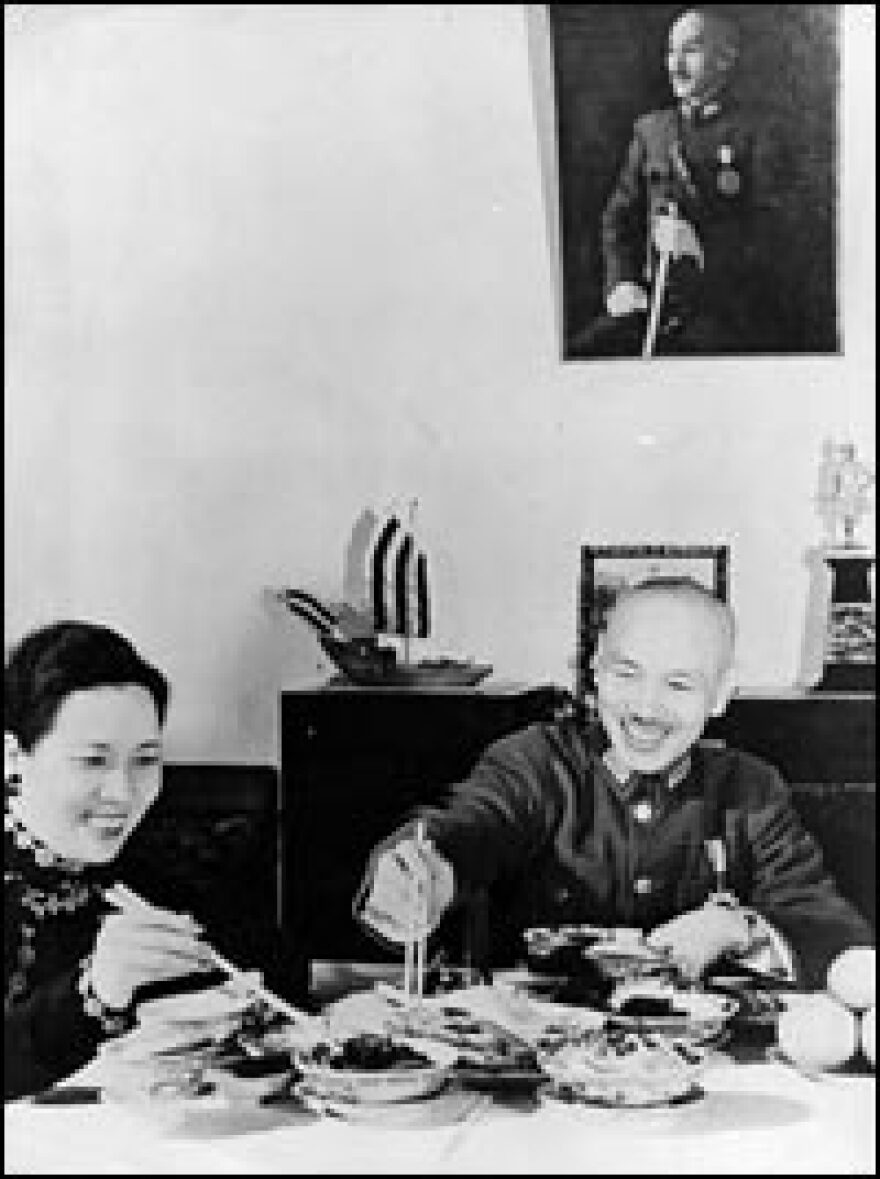
European monarchs dined there. Chinese leader Chiang Kai-shek once sent ambassadors to try the famous escargot. Ronald Reagan ate there when he was governor of California. Yet this food mecca is not in the culinary cities of Paris, San Francisco or Rome.
Instead, the Imperial Dynasty restaurant is nestled among pastures and cotton fields in rural California. One family has run the business for 123 years. Now, as Sasha Khokha of member station KQED notes, 84-year-old chef Richard Wing has decided to close down the five-star restaurant.
Wing's grandfather opened up shop in the tiny city of Hanford's Chinatown in 1883, selling bowls of steaming noodles for five cents. Wing himself began cooking when he was six -- peeling onions, washing bean sprouts and shelling shrimp.
Wing left Hanford during World War II to join the Army. And in 1945 he caught the attention of Gen. George C. Marshall, who asked Wing to accompany him to China as his personal chef.
"It was like a fantastic dream for me," Wing says. "Imagine for a humble Chinese cook to be offered this wonderful privilege to be assigned to the great five-star general."
That assignment also included being a food taster for Marshall, who was allergic to shellfish and strawberries. Wing tasted food from kitchens in Europe and Asia, where he carefully watched chefs and compiled his own recipes. During this service to Marshall, Wing also cooked for Presidents Roosevelt, Truman and Eisenhower.
When he returned to Hanford in 1958, his mission was to bring fine dining to California's rural San Joaquin Valley. He transformed his grandfather's noodle house into a five-star restaurant, decorating it with intricate jade carvings, and tasseled Chinese lanterns. But the Imperial Dynasty was not a Chinese restaurant.
"It's more French cooking than Chinese," with a bit of Russian, German, Italian and Swiss flavoring throw in, Wing says.
Wing's menu boasted Cornish game hen and poached salmon, with egg fu yung as the only obvious Chinese dish. Soon, the Imperial Dynasty attracted diners from all over the world to the cow town. A group of wealthy New York businessmen used to fly in once a month just for the escargot -- a garlicky recipe Wing took years to perfect.
In the restaurant's final months, locals -- mostly wealthy farmers -- came back three and four times a week just for those buttery snails. And for beer and wine -- the basement cellar holds 70,000 bottles -- some from the 1920s.
This wine, and Wing's menu, won him scores of international awards. But health problems kept him out of the kitchen for the past year. He says he's tired, and the fourth generation of Wings doesn't want to take over the restaurant business. So the Imperial Dynasty, which anchored Hanford's fading Chinatown, has closed its doors for the last time.
Copyright 2022 NPR. To see more, visit https://www.npr.org.

